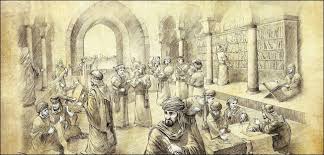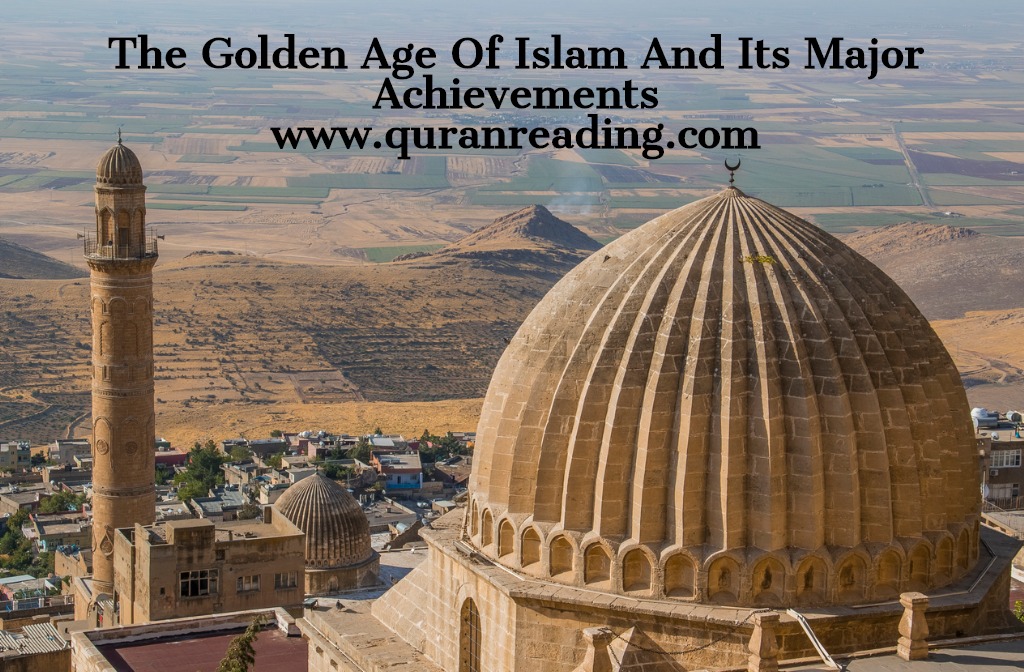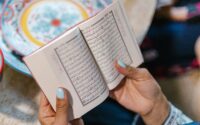
The Golden Age Of Islam And Its Major Achievements

In today’s article, The Golden Age Of Islam And It’s Significant Achievements is a discussion about the golden era from the 8th to 14th centuries when Islamic achievements were at its peak. Let us briefly discuss a few details and let us answer a few of our reader’s questions in this brief discussion.

When we talk about The golden age of Islam, a few queries come to mind, which are,
What is the golden age of Islam?
What achievements did scholars make during the golden age?
What are the notable and famous people of the Golden Era of Islam?
Let us now search for the answers to these questions.
What is the golden age of Islam?
The golden age of Islam reminds us of the period between the 8th and 14th centuries. The golden age of Islam was the era of progress. Cultural, scientific and economic progress was its peak and the age gave the world brilliant ideas that became the foundation stones for the next development in all these fields.
It was the time of Abbasid caliph “Khalifa Haroon-ur-Rashid” who laid the foundation for the wisdom house in Baghdad. It is also known as the grand library of Baghdad. It was the intellectual center in Baghdad at that time.
In 1258 this house of wisdom and its hard-earned content was destroyed. It happened at the time of the siege of Baghdad.
What achievements did scholars make during the golden age?
Translations: It was one of the major achievements of the golden age of Islam. Scientific and philosophic texts of Greeks were translated into Arabic during this time. The translation work comprised of 2 centuries. The translation work started with the translation of Aristotle’s work. Then comes the major other works which include,
- Aristotle
- Aryabhata
- Brahmagupta
- Charaka
- Hippocrates
- Euclid
- Galen
- Plotinus
- Sushruta
- Pythagoras
- Plato
Muslims in the Golden age contributed a lot and their role is vital in modern inventions.
Medicine, Agriculture, finance almost every major filed was dealt with brilliantly. Major works regarding drugs were also translated into the Arabic language which imparted a significant effect on future revolutions.
Al-Khwarizmi is famous for the development of the major field of Algebra, and this is a wonderful contribution to the field of mathematics. This was the achievement of the same Golden era of Islam. The etymology of the great word Algorithm can be traced back to Al-Khwarizmi. He was also famous as the first geographer of Islam. This is one of the major achievements which is the base for the next developments in the field of mathematics.
Abu Yusuf Ya‘qub ibn Ishaq Al-Kindi was the first person who introduced Aristotle’s philosophy to the Arabs and he was also a famous mathematician.
Al-Jahith was famous for his book “Book of Animals”.
And who can deny the great name of Ibn al-Haytham, a famous physicist? He performed lots of experiments on optics which provided a great source for future developments.
What are the notable and famous people of the Golden Era of Islam?
Abu Maʿshar (Born 786– Died 886)— He translated works by Aristotle.
Averroes (Born 1126– Died 1198)— He was a Muslim logician who was well known for his analysis on Aristotle
Avicenna (Born 980– Died 1037)— Persian thinker and doctor popular for composing The Canon of Medicine.
Al-Ghazali (Born 1058– Died 1111)— Persian scholar who was the creator of The Incoherence of the Philosophers, which tested the logicians who supported Aristotelianism
Muhammad al-Idrisi (Born 1099– Died 1169)— Arab geographer who worked under Roger II of Sicily and added to the Map of the World
Muhammad ibn Musa al-Khwarizmi (Died 850)— Persian polymath top of the House of Wisdom
Al-Kindi (Died 873)— viewed as the among the primary Arab thinkers, he joined the philosophy of Aristotle and Plato
Maslama al-Majriti (Born 950– Died 1007)— Arab mathematician and stargazer who deciphered Greek writings
Hunayn ibn Ishaq (Born 809– Died 873)— Arab researcher and savant who was put responsible for the House of Wisdom. In the course of his life, he deciphered more than 116 compositions by numerous individuals of the most huge researchers ever.
The Banu Musa siblings—momentous designers and mathematicians of Persian plunge
Sahl ibn Harun (Died 830)— rationalist and polymath
Al-Ḥajjaj ibn Yusuf ibn Maṭar (Born 786– Died 833)— mathematician and an interpreter who was known for his interpretation of Euclid’s works
Thābit ibn Qurra (Born 826– Died 901)— mathematician, stargazer, and interpreter who transformed the Ptolemaic framework. Considered as the establishing father of statics.
Yusuf Al-Khuri (Died 912)— Christian mathematician and space expert who was recruited as an interpreter by Banu Musa siblings
Qusta Ibn Luqa (Born 820– Died 912)— mathematician and doctor who interpreted Greek writings into Arabic
Abu Bishr Matta ibn Yunus (Born 870– Died 940)— doctor, researcher, and interpreter
Yahya Ibn al-Batriq (Born 796– Died 806)— cosmologist and interpreter
Yahya ibn Adi (Born 893– Died 974)— Syriac Jacobite Christian thinker, scholar, and interpreter
Sind ibn Ali (Died 864)— cosmologist who interpreted and revamped Zij al-Sindhind
Al-Jahiz (Born 781– Died 861)— creator and scholar known for Kitab al-Hayawan and various abstract works
Ismail al-Jazari (Born 1136– Died 1206)— physicist and designer who is most popular for his work recorded as a hard copy The Book of Knowledge of Ingenious Mechanical Devices in 1206
Abu Yusuf Yaqub ibn ʼIsḥaq aṣ-Ṣabbāḥ al-Kindi (800– Died 870)—mathematician, and the primary self-recognized logician in the Arabic custom
Jabir Ibn Hayyan—known for his work with pragmatic metallurgy.
Omar Khayyam (Born 1048– Died 1131)— Persian artist, mathematician, and cosmologist.
Researchers living in Baghdad during the Abbasid Caliphate added to the chemistry of Greek and other existing information about way of thinking, space science, medication, and numerous different controls. These researchers contributed new experiences in their fields and at last passed their disclosures along to Europe.
The world cannot forget the great achievements of the Muslims in the Golden age of Islam.





